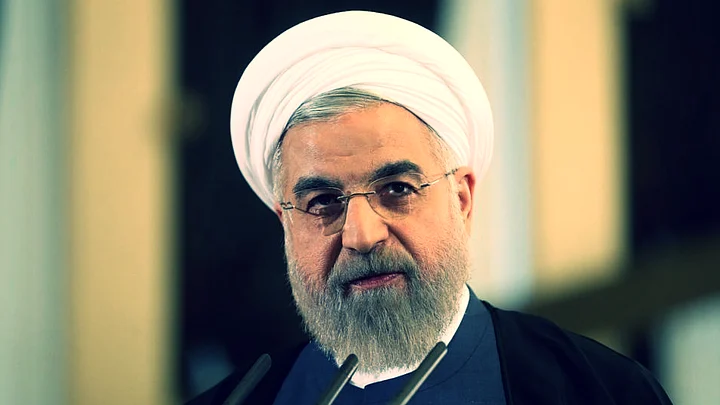Hassan Rouhani defeated other candidates to win the Iranian Presidential elections with a comfortable margin of 57%. As felicitations pour in for Rouhani, it's time to analyse what his re-election as the President of Iran actually translates to.
A Thumbs Up for His Policies
Rouhani's efforts to bring Iran out of isolation by signing the nuclear deal have paid off. Among other things, the election should be seen as a referendum on the nuclear deal. The sanctions that had earlier crippled the Iranian economy have been lifted, integrating the country into the global economy, even if it’s at a glacial pace.
The major charge against Rouhani was his failure to revamp the economy. Unemployment in Iran remains high at 12.5 percent, with 30 percent of the youth unemployed.
The leading opposition candidate – Ebrahim Raisi, a hardliner cleric – based his election campaign on criticising Rouhani's economic policies. Raisi championed himself as a pro-poor candidate. He also promised to take a tougher line with western nations. Rouhani's victory indicates a basic popular acceptance of his policies, regardless of the pace of reform.
If we keep in mind the 2016 election of the Assembly of Experts, it signals a consistent trend towards electing moderate reformist candidates. Iranians are gradually shifting from hardliner, conservative leaders to those that promise them greater freedoms.
Western Powers More Favourable
The election also brings a result that will validate many nations' tenuous faith in Iran. It is no big secret that western powers, especially those who participated in the nuclear deal negotiations, were in favour of Rouhani winning. The re-election of a moderate candidate bolsters Iran's fragile reputation among many western countries (except the US under President Trump). It also makes it more likely that these countries might provide economic aid and opportunities to Iran in the future.
More Freedom?
Rouhani based his election campaign on a promise for greater liberties. This pitch may have been a winning factor, especially with the urban population of Iran. But whether he might be able to fulfil this promise remains questionable. Iran's political system is one of the most complicated in the world. Most of the actual power rests with the Supreme Leader, including the right to veto any decision. This makes it difficult for Rouhani to make progress with his reformist agenda. Case in point, he has been unable to secure the release of reformist leaders Mir Hossein Mousavi and Mehdi Karoubi, both of whom have been under house arrest for over six years.
No End to Shadow War
The Presidential election is unlikely to have any impact on Iran's deepening proxy war with Saudi Arabia in the Middle East. The power struggle between Saudi and Iran will likely continue without any change. The removal of sanctions has another effect – it has given Iran the freedom to produce and sell crude oil. Even considering the current low prices of crude oil, Iran today is better equipped to fund its intervention in sister countries like Syria, Lebanon and Yemen. The Arab Spring and Iran nuclear deal have given the country ambitions for a greater role vis-a-vis Saudi Arabia. The shadow war continues, with Saudi Arabia calling Iran "the spearhead of global terrorism" on the occasion of Trump's visit.
Status Quo
All in all, the re-election of Rouhani signals a gentle maintenance of status quo. The moderate leaders and their supporters may be growing in numbers, but the real power still lies with the Supreme Leader. Rouhani, no matter what his intentions, cannot act with complete liberty to pursue his agendas. Therefore, whatever future reforms get initiated in Iran, will likely be diluted and superficial.
(Priyale Chandra is currently pursuing her Masters from AJK MCRC. Her major interests are international affairs, literature, politics and history. She can be reached @PriyaleChandra. This is a personal blog and the views expressed above are the author’s own. The Quint neither endorses nor is responsible for the same.)
(At The Quint, we question everything. Play an active role in shaping our journalism by becoming a member today.)
